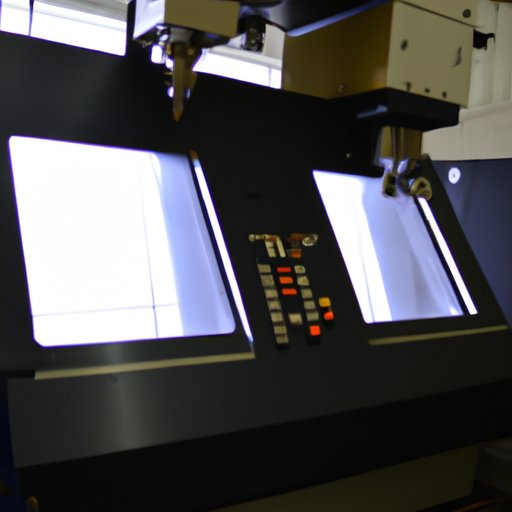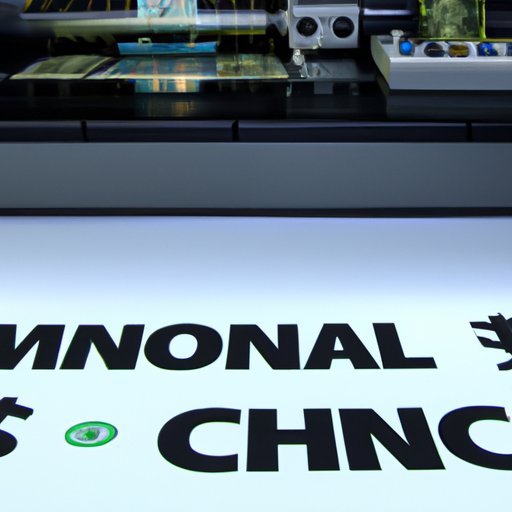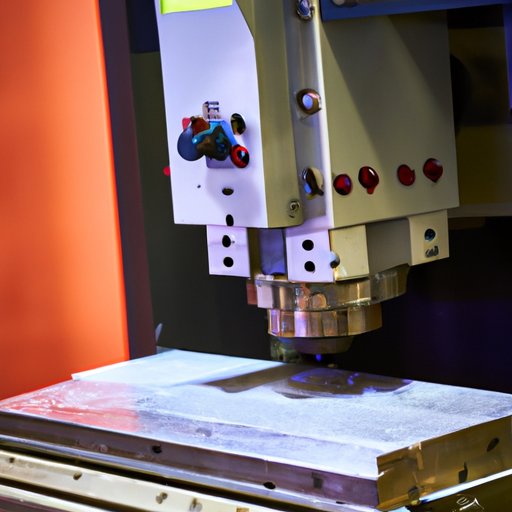Introduction
Computer Numerical Control (CNC) is a technology used in manufacturing that enables automated production of parts using programmed commands. It is used in a variety of industries, such as aerospace, automotive, medical, and consumer products. Starting a CNC business requires planning, research, and preparation. This article will provide an overview of the steps necessary for starting a successful CNC business.

Types of CNC Machines and Their Uses
The first step in starting a CNC business is to identify the type of CNC machine that is best suited for your business. There are several types of CNC machines available, including lathes, milling machines, routers, 3D printers, and laser cutters. Each type of machine has its own range of capabilities and applications. For example, lathes are used to create cylindrical objects, while milling machines are used to produce flat surfaces.
When selecting a CNC machine, it is important to consider the type of materials you will be working with, the size of the objects you will be creating, and the complexity of the designs. It is also important to consider the cost of the machine, as well as the availability of replacement parts and training resources.

Financing Options for Acquiring CNC Equipment
The next step in starting a CNC business is to explore different financing options. Many companies offer attractive financing packages, including leasing and installment plans. It is important to compare different financing packages to determine which one best meets your needs. When evaluating different financing options, it is important to consider the interest rate, repayment terms, and any additional fees or charges. Additionally, it is important to read the fine print to ensure that you fully understand the terms and conditions of the agreement.

Analyzing the Market for CNC Services
Once you have selected the appropriate CNC equipment and secured the necessary financing, the next step is to analyze the market for CNC services. Identifying potential customers and estimating demand and pricing are key components of this process. To identify potential customers, research the types of businesses that could benefit from CNC services. For example, many small businesses may require custom parts produced with CNC technology, or they may need assistance with prototyping and design work. Additionally, many large companies may outsource CNC work to save time and money.
After identifying potential customers, it is important to estimate the demand for CNC services and set competitive prices. Research the rates of other CNC businesses in your area to get an idea of the going rate for CNC services. Additionally, use market research tools to gauge customer demand and set prices accordingly.
Developing a Business Plan
Creating a business plan is an essential step for starting a CNC business. A business plan should include goals and strategies for achieving those goals. It should also outline the marketing plan for promoting the business and attracting new customers. Additionally, a business plan should include financial projections to help assess the viability of the business.
Investigating Local Regulations and Licensing Requirements
Before launching a CNC business, it is important to investigate local regulations and licensing requirements. Depending on the location, there may be specific regulations regarding the operation of CNC equipment. Additionally, some locations require businesses to obtain licenses before they can operate. It is important to research these requirements and apply for the necessary licenses before starting a CNC business.
Conclusion
Starting a CNC business requires careful planning and preparation. The steps outlined in this article provide an overview of the process. These steps include identifying the type of CNC machine that is best suited for your business, exploring financing options, analyzing the market for CNC services, creating a business plan, and investigating local regulations and licensing requirements. By following these steps, entrepreneurs can set themselves up for success when starting a CNC business.
(Note: Is this article not meeting your expectations? Do you have knowledge or insights to share? Unlock new opportunities and expand your reach by joining our authors team. Click Registration to join us and share your expertise with our readers.)
